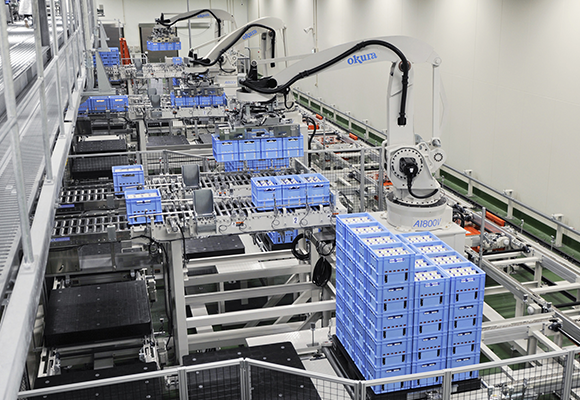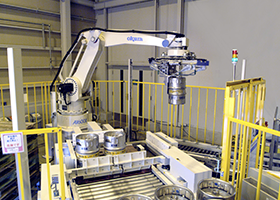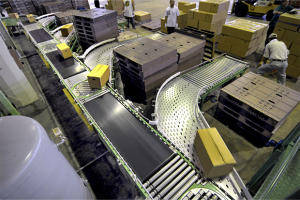Introduction
As we discussed automation in pharmaceutical Industry, the RPA industry has witnessed explosive growth in recent years, driven by the need for increased efficiency, productivity, and cost-effectiveness across various sectors. This article will delve into the key aspects of the RPA industry, including its definition, trends, challenges, applications, best practices, and future outlook.
What is the Robotic Process Automation Industry?
The RPA industry encompasses the development, deployment, and maintenance of software solutions that enable businesses to automate their operations. At its core, RPA leverages artificial intelligence (AI) and machine learning (ML) technologies to mimic human actions and interact with various software applications, such as enterprise resource planning (ERP) systems, customer relationship management (CRM) platforms, and others.
Key characteristics of the RPA industry include:
- Rule-based automation: RPA excels at automating tasks that follow predefined rules and logic.
- Software robots: These bots can work 24/7 without fatigue, ensuring consistent performance and increased productivity.
- Integration capabilities: RPA solutions can integrate seamlessly with existing IT infrastructure and applications.
- Scalability: RPA can be easily scaled up or down to meet changing business demands.
The evolution of the RPA industry has been rapid. Initially focused on automating simple, rule-based tasks, RPA has evolved to incorporate more sophisticated technologies, such as AI, machine learning, and natural language processing (NLP). This has expanded the scope of automation to include more complex tasks, such as:
- Intelligent Document Processing (IDP): Extracting data from unstructured documents such as invoices, contracts, and emails.
- Chatbots and Virtual Assistants: Providing automated customer service and support.
- Process Discovery and Mining: Identifying and analyzing business processes for potential automation opportunities.

RPA Industry Trends
Several key trends are shaping the future of the RPA industry:
- AI-Powered RPA: Integrating AI capabilities, such as machine learning, deep learning, and computer vision, with RPA enhances its capabilities. This allows bots to handle more complex tasks, such as decision-making, image recognition, and sentiment analysis.
- Hyperautomation: This concept involves automating as many business processes as possible, using a combination of technologies, including RPA, AI, machine learning, and other advanced technologies.
- Cloud RPA: Cloud-based RPA platforms offer several benefits, such as improved scalability, flexibility, and cost-effectiveness. They also enable faster deployment and easier maintenance.
These trends are having a profound impact on businesses. AI-powered RPA is enabling organizations to automate more complex tasks, improve decision-making, and gain a competitive advantage. Hyperautomation is driving significant operational efficiency and transforming business processes. Cloud RPA is making automation more accessible and affordable for businesses of all sizes.
RPA Industry Challenges
Despite its numerous benefits, the RPA industry faces several challenges:
- Skill shortage: There is a growing demand for skilled RPA professionals, such as developers, analysts, and architects. However, finding and retaining talent with the necessary skills can be challenging.
- Security concerns: As RPA solutions gain access to sensitive data, ensuring the security and privacy of this data is critical.
- Integration issues: Integrating RPA with existing IT infrastructure and applications can be complex and time-consuming.
- ROI measurement: Measuring the return on investment (ROI) of RPA initiatives can be difficult, as it requires careful planning and data analysis.

RPA Industry Applications
RPA has applications across a wide range of industries, including:
- Finance: Automating tasks such as loan processing, claims processing, and fraud detection.
- Healthcare: Streamlining patient admissions, medical billing, and appointment scheduling.
- Manufacturing: Automating supply chain management, inventory control, and quality control processes.
- Customer service: Automating customer support interactions through chatbots and virtual assistants.
RPA Industry Best Practices
Successful RPA implementation requires a well-defined strategy and careful planning. Key best practices include:
- Process selection: Identifying and prioritizing processes that are suitable for automation.
- Team building: Assembling a cross-functional team with the necessary skills and expertise.
- Change management: Communicating the benefits of RPA to employees and addressing any concerns or resistance to change.
- Continuous improvement: Regularly monitoring and optimizing RPA processes to ensure ongoing efficiency and effectiveness.
RPA Industry Vendors
The RPA market is dominated by a few key players, including:
- UiPath: A leading provider of RPA software with a strong focus on AI and machine learning.
- Automation Anywhere: A global leader in RPA with a comprehensive platform that includes AI, analytics, and cloud capabilities.
- Blue Prism: A UK-based company that provides an enterprise-grade RPA platform known for its security and compliance features.
RPA Industry Jobs
The growing demand for RPA has created a strong job market for skilled professionals. In-demand RPA job roles include:
- RPA Developer: Responsible for designing, developing, and implementing RPA solutions.
- RPA Analyst: Responsible for analyzing business processes, identifying automation opportunities, and defining RPA requirements.
- RPA Architect: Responsible for designing and implementing the overall RPA architecture and strategy.

The Future of the RPA Industry
The future of the RPA industry looks promising. Advancements in AI, machine learning, and other emerging technologies are expected to further enhance the capabilities of RPA solutions.
- Cognitive RPA: Integrating cognitive capabilities, such as natural language processing and computer vision, will enable bots to understand and interact with unstructured data more effectively.
- Hyperautomation platforms: The emergence of comprehensive hyperautomation platforms will enable organizations to orchestrate and manage a wide range of automation technologies, including RPA, AI, and machine learning.
- Intelligent Process Automation (IPA): IPA combines RPA with AI and other technologies to create more intelligent and autonomous automation solutions.
These advancements will have a significant impact on businesses and society. RPA will continue to drive operational efficiency, improve customer experience, and unlock new levels of productivity.
Conclusion
The RPA industry is rapidly evolving, driven by advancements in technology and the increasing demand for automation. By understanding the key aspects of the RPA industrial automation industry, businesses can leverage its power to transform their operations, gain a competitive advantage, and thrive in the digital age.


